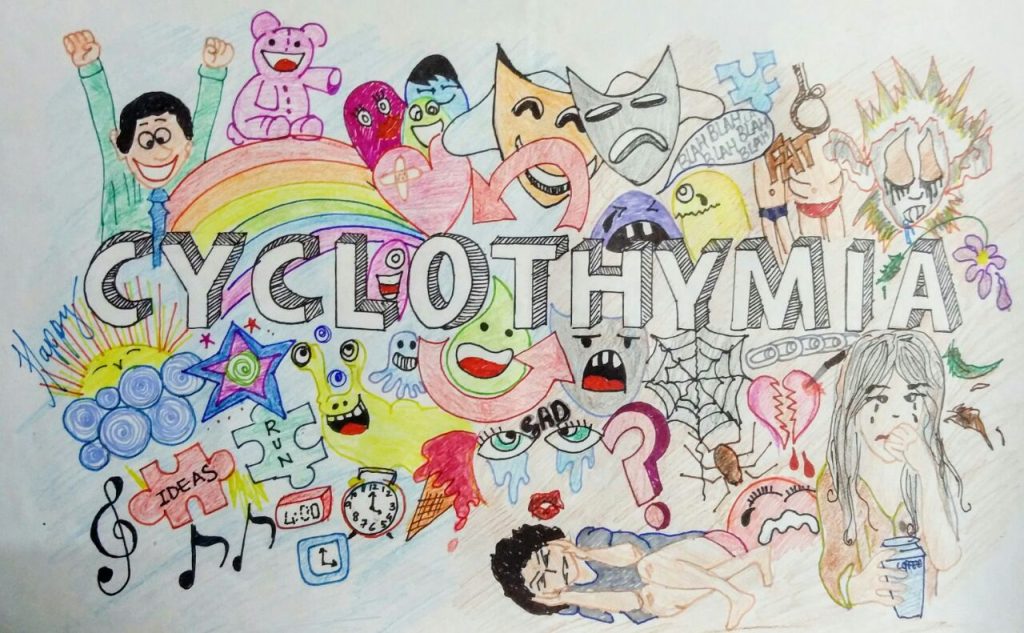This blog post will provide you with information about cyclothymia, including its symptoms, challenges, tips for coping, and treatment options. We will also hear from experts on cyclothymia about their experiences living with this condition.
Contents
Understanding Cyclothymia
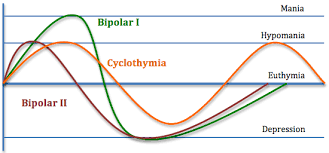
Cyclothymia is a mental health disorder that is characterized by mood swings that range from mild to moderate. It is a type of bipolar disorder, and it can be difficult to live with.
People with cyclothymia have periods of hypomania (a less severe form of mania) and periods of depression. These mood swings can occur several times a day, or they may go weeks or months without appearing.
Signs And Symptoms Of Cyclothymia
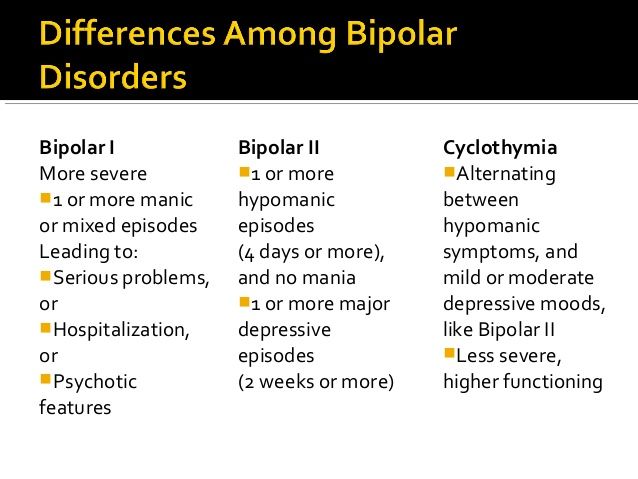
The symptoms of cyclothymia can vary from person to person. However, there are some common signs and symptoms that you should be aware of.
Mood swings: Cyclothymia is characterized by mood swings that range from mild to moderate. You may experience periods of hypomania (a less severe form of mania) and periods of depression. These mood swings can occur several times a day, or they may go weeks or months without appearing.
Irritability: You may become irritable easily, especially during your periods of hypomania and depression. You may also find that you are more sensitive to criticism than usual.
Poor judgment: During your periods of hypomania, you may make poor decisions because your judgment is impaired. For example, you may spend money impulsively or take risks that you wouldn’t normally take.
Anxiety: You may experience anxiety during your periods of hypomania and depression. This can manifest as feeling tense or jumpy, having a racing heart, or feeling like you can’t catch your breath.
DSM And Its Criteria
Cyclothymia is diagnosed using the DSM-IV (the Diagnostic and Statistical Manual of Mental Disorders, fourth edition), which is published by the American Psychiatric Association. The DSM is a manual that mental health professionals use to diagnose mental health disorders.
To be diagnosed with cyclothymia, you must meet two out of three of the following criteria:
- A history of mood swings that range from mild to moderate
- Episodes of hypomania and depression that occur several times a day, or go weeks or months without appearing
- Impaired judgment during periods of hypomania
- Anxiety during periods of hypomania and depression
Degrees Of Cyclothymia
Cyclothymia is classified as a mild or moderate mental health disorder. This means that the mood swings associated with it are not as severe as those found in other mental health disorders, such as bipolar disorder or major depression. However, cyclothymia can still be debilitating for those who live with it. It can impact your relationships, work-life cause, and social life.
Causes Of Cyclothymia
The cyclothymia is unknown. However, some factors may increase your risk of developing this condition.
Genetics: Cyclothymia may be caused by genetics. If you have a family member who has bipolar disorder or another mental health disorder, you may be more likely to develop cyclothymia.
Chemicals in the brain: Cyclothymia may also be caused by chemical imbalances in the brain. This means that the chemicals responsible for mood swings are not functioning properly.
Stress: Stress can also trigger or worsen mood swings. If you are under a lot of stress, you may be more likely to develop cyclothymia.
Cyclothymia Vs. Dysthymia
Cyclothymia and dysthymia are two different mental health disorders.
- The former is a type of bipolar disorder, while the latter is a type of depression.
- The former has periods of hypomania (a less severe form of mania) and periods of depression. The latter has only periods of depression.
- The former is diagnosed using the DSM-IV, while dysthymia is diagnosed using the DSM-III. The DSM-III was published in 1980 and is no longer used to diagnose mental health disorders.
Living With Cyclothymia
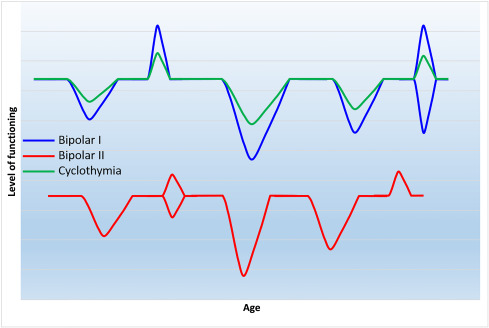
Cyclothymia can be difficult to live with. The mood swings can impact your self-care, relationships, work-life balance, and social life.
Relationships
If you have cyclothymia, your relationships may be affected. You may find that it is difficult to maintain friendships or romantic relationships because of the mood swings. You may also feel like you are constantly putting your loved ones on edge because of your mood swings.
Challenges Faced In Relationships
Mood swings: One of the biggest challenges faced in relationships is mood swings. Cyclothymia can cause you to have periods of hypomania and depression, which can be difficult for your loved ones to deal with.
Impaired judgment: People with cyclothymia may make impulsive decisions during their periods of hypomania. This can lead to problems in your relationships.
Anxiety: People with cyclothymia may also feel anxious during their periods of hypomania and depression. This can be difficult for your loved ones to deal with.
Work-life balance
If you have cyclothymia, it may be difficult to maintain a healthy work-life balance. You may find that you are unable to concentrate at work or that you are always feeling stressed out. This can lead to problems at work and may impact your career.
Challenges Faced In Worklife
Concentration: People with cyclothymia may find it difficult to concentrate at work. This can lead to problems in your career.
Stress: Cyclothymia can cause you to feel stressed out all the time. This can lead to health problems and difficulty managing your work-life balance.
Social life
If you have cyclothymia, your social life may be affected. You may find that you are no longer interested in going out or that you don’t want to be around people. This can lead to loneliness and social isolation.
Challenges Faced In Social Life
Loneliness: People with cyclothymia may find that they are no longer interested in going out or spending time with friends. This can lead to loneliness and social isolation.
Social anxiety: Cyclothymia can also lead to social anxiety. You may feel anxious and uncomfortable around people, which can make it difficult to maintain friendships.
Self-care
Cyclothymia can also lead to problems with self-care. You may find it difficult to take care of yourself when you are feeling down or anxious.
Challenges Faced In Self-care
You may not feel like eating or sleeping, and you may not have the energy to do anything else. This can lead to weight loss or gain, fatigue, and other health problems.
NOTE: People with cyclothymia may experience stigma and discrimination from others. This can be difficult to deal with and can lead to feelings of isolation.
Coping With Cyclothymia
There are several things that you can do to help cope with cyclothymia. Here are some tips:
Journaling: Journaling can be a great way to express your thoughts and feelings.
Yoga or meditation: Yoga and meditation can help you learn how to control your moods and manage stress.
Self-care: Make sure to take care of yourself by eating healthy, getting enough sleep, and taking breaks during the day.
Talk to someone: It can be helpful to talk to someone about how you’re feeling. This could be a friend, family member, therapist, or doctor.
Join a support group: Joining a support group can help share experiences and get support from others who understand what you are going through.
NOTE: Stress can aggravate cyclothymia, so it’s important to find ways to reduce stress in your life.
Lifestyle Accommodations
If you have cyclothymia, there may be some things that you need to change about your lifestyle. Here are some things that you may want to consider:
Eating a healthy, balanced diet: Eating a healthy diet can help improve your mood and energy levels.
Getting enough sleep: Getting adequate sleep is essential for your mental health.
Exercising regularly: Exercising regularly can help improve your mood and energy levels.
Avoiding caffeine and alcohol: Caffeine and alcohol can aggravate cyclothymia, so it’s best to avoid them.
Taking breaks during the day: Taking short breaks throughout the day can help you relax and rejuvenate.
Handy Accommodations
- Create a routine: Having a routine can help you feel more in control of your life.
- Make lists: Making lists can help you keep track of what needs to be done.
- Set goals: Setting goals can help you stay motivated.
Talking To a Professional
If you are finding it difficult to cope with cyclothymia, you may want to talk to a professional. Several professionals can help, including:
- Psychologist: A psychologist can help you understand your moods and emotions.
- Therapist: A therapist can help you manage your cyclothymia and deal with the challenges it presents.
- Doctor: Your doctor can prescribe medications that can help control your moods.
It’s important to talk to your doctor/professional about your symptoms and how they are impacting your life. As it will help them arrive at an effective and suitable treatment plan. Furthermore, a treatment plan can help you manage your cyclothymia. It can help you track your moods, symptoms, and treatment progress.
Treatment Options
If you are struggling with cyclothymia, there are several treatment options available. Here are some of the most common treatments:
Therapy: therapy is often one of the first treatments prescribed for cyclothymia. It can help you learn how to manage your moods and emotions.
Medications: Several medications can help control the symptoms of cyclothymia.
Lifestyle changes: Making some changes to your lifestyle can also help manage cyclothymia.
Therapies
Several therapies can help treat cyclothymia. Here are some of the most common therapies:
Cognitive-behavioral therapy (CBT): CBT is a type of therapy that helps you change your thoughts and behaviors.
Dialectical behavior therapy (DBT): DBT is a type of therapy that helps you manage your emotions and stress.
Interpersonal therapy (IPT): IPT is a type of therapy that helps you improve your relationships with others.
Family-focused therapy: Family-focused therapy involves working with your family to help them understand cyclothymia and how to best support you.
Group therapy: Group therapy is a type of therapy that involves meeting with a group of people who have similar problems.
Brain stimulation therapies: Brain stimulation therapies, such as electroconvulsive therapy (ECT), may be helpful in managing cyclothymia. There are two types of ECT: unilateral and bilateral.
- Unilateral ECT: Unilateral ECT is when only one side of your brain receives stimulation. This is the most common type of ECT.
- Bilateral ECT: Bilateral ECT is when both sides of your brain receive stimulation. This is less common than unilateral ECT.
ECT is most commonly helpful to treat severe depression. But it may also be effective in managing cyclothymia.
Medications
Several medications can help control the symptoms of this condition. Here are some of the most common medications:
Antidepressants: Antidepressants are often prescribed to help control the mood swings associated with cyclothymia.
Mood stabilizers: Mood stabilizers help to control the mood swings and manic episodes associated with cyclothymia.
Anti-psychotics: Antipsychotics are often prescribed to help manage psychotic symptoms, such as delusions or hallucinations.
Helping Someone With Cyclothymia
If your loved one has this condition, there are several things that you can do to help them. Here are some tips:
Learn about cyclothymia: The more you know about cyclothymia, the better equipped you will be to help your loved one.
Offer support: Offer your support and understanding. Let them know that you are there for them.
Encourage treatment: Encourage your loved one to seek treatment for their cyclothymia.
Be patient: Be patient with your loved ones, as it may take time for them to get the help they need.
Expert Opinion on Cyclothymia
There is a lot of research that still needs to go in the way to better understand this mental condition. However, we do know that it is a serious mental illness that can impact people’s lives in a significant way.
“Cyclothymia is a serious mental illness that often goes unrecognized. It can have a significant impact on people’s lives, including their work, relationships, and overall quality of life.”
– Dr. Aarti Gupta, MD
Brain Activity in Cyclothymia
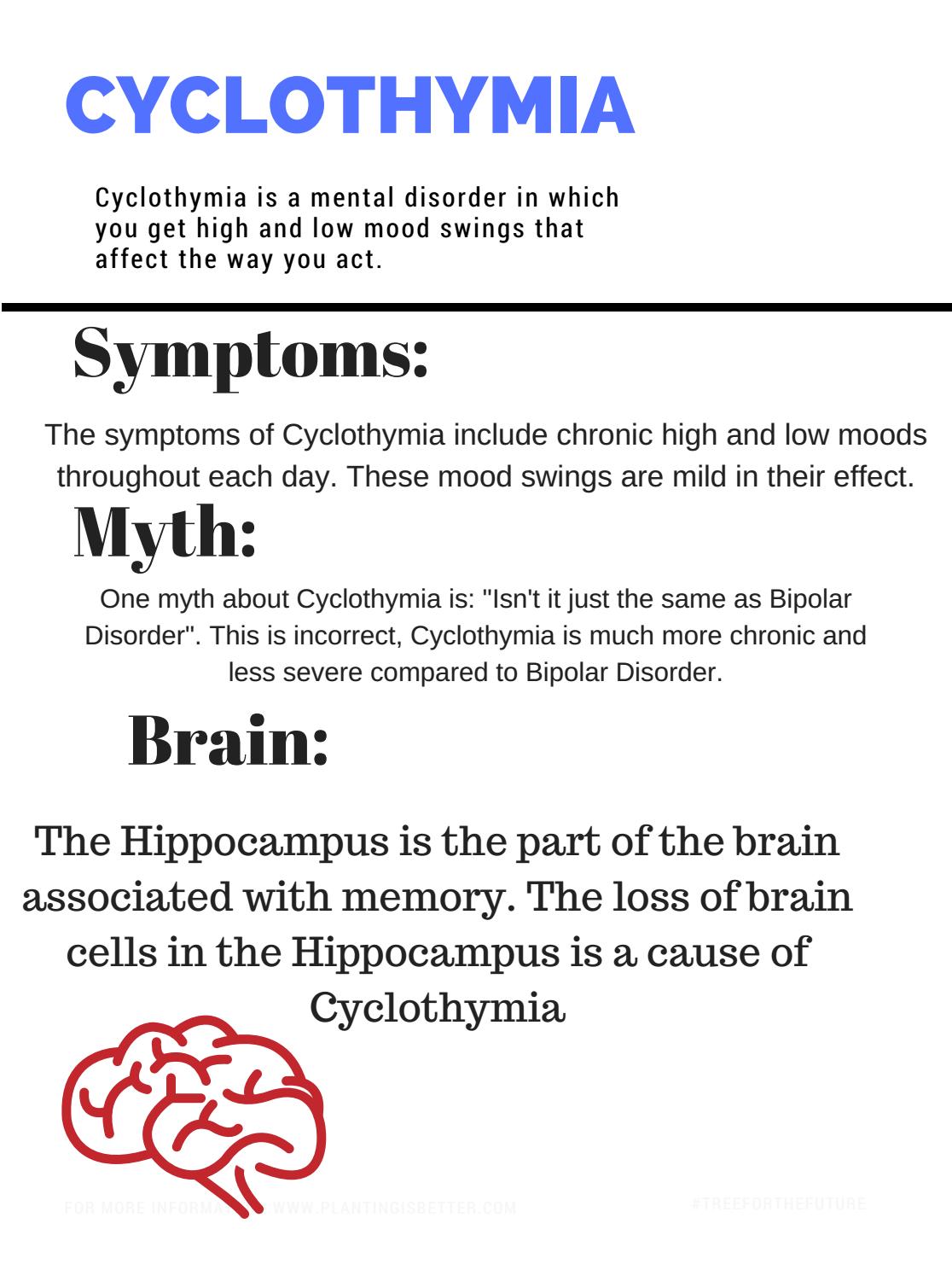
Although the cause of cyclothymia is unknown, recent research has shown that there is decreased activity in the frontal lobe and the anterior cingulate cortex in people with cyclothymia. This research provides valuable insight into the possible causes of this condition and could lead to new treatments in the future.
Inference
There is some evidence that this condition may be an outcome of abnormal brain activity. One study found that people with this condition have different patterns of brain activation than people without the condition.
Case Study
Case Example 1
Here is a case study of a woman who has cyclothymia:
“I had always been a bit moody, but it wasn’t until I had my son that I started to struggle. Consequently. I would go from being happy to feeling down in a matter of minutes. As a result, I wasn’t sleeping well and I was feeling worn out all the time. My doctor told me that I might have cyclothymia and he prescribed some medications to help control my moods.”
Case Example 2
In this case study, we will look at a patient with cyclothymia who receives ECT treatment.
Patient profile: The patient is a 38-year-old woman who has cyclothymia.
ECT treatment: The patient receives bilateral ECT twice a week for a total of eight treatments.
Results: The patient reports improvements in her mood swings since starting ECT treatment. She feels more stable and less anxious. Her relationships with her family and friends have also gotten better.
Conclusion
Cyclothymia is a serious mental illness that can impact people’s lives in a significant way. If you or someone you know is struggling with this condition, seek help from a professional. Several therapies can help treat this condition. Several medications can help control the symptoms of this mental condition. Offering support and understanding is one of the best things that you can do for someone with this mental condition.
A Word From Therapy Mantra
Your mental health — Your psychological, emotional, and social well-being — has an impact on every aspect of your life. Positive mental health essentially allows you to effectively deal with life’s everyday challenges.
At TherapyMantra, we have a team of therapists who provide affordable online therapy to assist you with issues such as depression, anxiety, stress, workplace Issues, addiction, relationship, OCD, LGBTQ, and PTSD. You can book a free therapy or download our free Android or iOS app.
